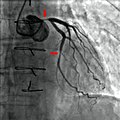Blood vessel disorder
Blood vessel disorders encompass a range of conditions that affect the blood vessels, including the arteries, veins, and capillaries. These disorders can lead to significant health problems, impacting the circulatory system's ability to function effectively. Understanding the types, causes, symptoms, and treatments of blood vessel disorders is crucial for managing these conditions.
Types of Blood Vessel Disorders
Blood vessel disorders can be broadly categorized into several types, each affecting different parts of the vascular system:
1. Arterial Disorders: These affect the arteries, which are blood vessels that carry oxygen-rich blood away from the heart. Common arterial disorders include atherosclerosis, peripheral artery disease (PAD), and aneurysms.
2. Venous Disorders: These impact the veins, responsible for returning deoxygenated blood back to the heart. Examples include deep vein thrombosis (DVT), varicose veins, and chronic venous insufficiency (CVI).
3. Capillary Disorders: These involve the capillaries, the smallest blood vessels in the body, which facilitate the exchange of water, oxygen, carbon dioxide, and many other nutrients and waste substances between blood and tissues. Conditions such as telangiectasia and hereditary hemorrhagic telangiectasia (HHT) fall under this category.
Causes
The causes of blood vessel disorders vary depending on the specific condition but can include factors such as genetics, lifestyle choices, and other underlying health issues. Common causes include:
- High blood pressure - High cholesterol - Smoking - Diabetes - Obesity - Inactivity - Family history of vascular or heart diseases
Symptoms
Symptoms of blood vessel disorders also vary widely but may include:
- Pain or discomfort in the affected area - Swelling - Changes in skin color (e.g., redness) - Varicose veins - Ulcers or sores that do not heal - Decreased mobility
Diagnosis
Diagnosis of blood vessel disorders typically involves a combination of medical history review, physical examination, and diagnostic tests, which may include:
- Blood tests - Ultrasound or Doppler studies - Angiography - CT or MRI scans
Treatment
Treatment for blood vessel disorders depends on the specific condition and its severity but may include:
- Lifestyle changes (e.g., diet, exercise, quitting smoking) - Medications to manage symptoms and underlying causes (e.g., blood thinners, cholesterol-lowering drugs) - Surgical procedures (e.g., angioplasty, vein stripping, vascular bypass surgery) - Minimally invasive treatments (e.g., sclerotherapy, endovenous laser treatment)
Prevention
Preventing blood vessel disorders involves managing risk factors and leading a healthy lifestyle. Recommendations include:
- Maintaining a healthy weight - Exercising regularly - Eating a balanced diet - Avoiding tobacco use - Managing chronic conditions such as diabetes and high blood pressure
Conclusion
Blood vessel disorders represent a significant health concern due to their potential impact on the circulatory system and overall well-being. Early detection, effective management, and lifestyle modifications are key to preventing complications associated with these conditions.
Transform your life with W8MD's budget GLP-1 injections from $125.
W8MD offers a medical weight loss program to lose weight in Philadelphia. Our physician-supervised medical weight loss provides:
- Most insurances accepted or discounted self-pay rates. We will obtain insurance prior authorizations if needed.
- Generic GLP1 weight loss injections from $125 for the starting dose.
- Also offer prescription weight loss medications including Phentermine, Qsymia, Diethylpropion, Contrave etc.
NYC weight loss doctor appointments
Start your NYC weight loss journey today at our NYC medical weight loss and Philadelphia medical weight loss clinics.
- Call 718-946-5500 to lose weight in NYC or for medical weight loss in Philadelphia 215-676-2334.
- Tags:NYC medical weight loss, Philadelphia lose weight Zepbound NYC, Budget GLP1 weight loss injections, Wegovy Philadelphia, Wegovy NYC, Philadelphia medical weight loss, Brookly weight loss and Wegovy NYC
|
WikiMD's Wellness Encyclopedia |
| Let Food Be Thy Medicine Medicine Thy Food - Hippocrates |
Medical Disclaimer: WikiMD is not a substitute for professional medical advice. The information on WikiMD is provided as an information resource only, may be incorrect, outdated or misleading, and is not to be used or relied on for any diagnostic or treatment purposes. Please consult your health care provider before making any healthcare decisions or for guidance about a specific medical condition. WikiMD expressly disclaims responsibility, and shall have no liability, for any damages, loss, injury, or liability whatsoever suffered as a result of your reliance on the information contained in this site. By visiting this site you agree to the foregoing terms and conditions, which may from time to time be changed or supplemented by WikiMD. If you do not agree to the foregoing terms and conditions, you should not enter or use this site. See full disclaimer.
Credits:Most images are courtesy of Wikimedia commons, and templates, categories Wikipedia, licensed under CC BY SA or similar.
Contributors: Prab R. Tumpati, MD




